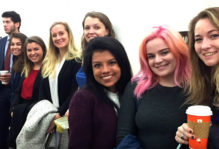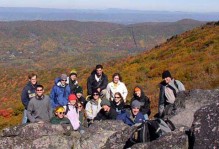Just what is Linguistics?
A persistent question that follows linguists from their first introductory classes as undergraduate students to their retirement as seasoned educators is “Just what exactly is linguistics?” The question endures in part because there is no one easy answer. The Linguistic Society of America (LSA) defines Linguistics as “broadly, the scientific study of language.” The Linguistic Society of America notes that and many topics are studied under this umbrella.
Such a general definition begs another frequently heard question: “Just what do linguists do?” The Linguistic Society of America reports: “Linguists investigate how linguistic knowledge is acquired, how it interacts with other mental processes, how it varies from person to person and region to region (even within one language), and how computer programs can model this knowledge.”
A lot of intellectual and printed space has been given to what linguistics is and what it isn’t. Here at William and Mary Linguistics is welcoming of various approaches and perspectives on the study of language. Linguists at William and Mary definitely believe that Linguistics is “the study of language both as a faculty of mind and as a social institution.”
As a sociolinguist, the everyday space where of language as a faculty of mind meets language as a social institution is the focus of both my courses and my research. We approach this space through the hands-on examination of language variation and change and the application of our findings to practical situations.
Over my coming blog entries, I will illustrate this idea and give examples of the work that my students and I do to better understand that space.
In the meantime, for more information see:
http://www.lsadc.org/info/ling-faqs-whymajor.cfm
http://www.wm.edu/as/linguistics/




No comments.
Comments are currently closed. Comments are closed on all posts older than one year, and for those in our archive.